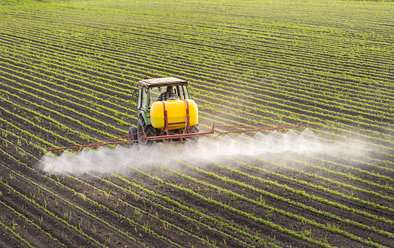Many growers experiencing crop damage
By Diego Flammini
Assistant Editor, North American Content
Farms.com
Soybean farmers in parts of Missouri, Tennessee and Arkansas are experiencing crop damage as a result of what’s believed to be illegal use of dicamba.
The older herbicide has been recently used to help manage glyphosate-resistant weeds.
According to the St. Louis Post-Dispatch, a Missouri Department of Agriculture representative said there’s been more than 100 complaints of pesticide drift in four Missouri Bootheel counties.
“The symptoms match what we would expect coming out of dicamba,” Kevin Bradley, an associate professor with the University of Missouri’s division of plant sciences, told the Post-Dispatch.

Getty
Many farmers have planted Roundup Ready 2 Xtend soybeans, but the dicamba-based herbicide made for the Xtend beans hasn’t been approved by the Environmental Protection Agency. This situation has led some farmers to use other dicamba herbicides for weed management, which can cause harm to neighboring fields through drifting.
“It basically boils down to the fact that you have a very sensitive crop in soybeans planted in close proximity to crops that are a GMO that is able to withstand dicamba,” Bradley told the Post-Dispatch. “And some people made dicamba applications, allegedly, and hurt (other) people’s crops.”
Terry Weaver, a farmer near Holcomb, Missouri, said he’s worried some victims may seek legal action to make up for losses.
Kade McBroom, who operates Malden Specialty Soy, said dicamba travels easily and makes pinpointing the source difficult.
State Rep. Don Rone said he’s going to pre-file legislation in December which would increase the penalties for those who misuse or illegally spray herbicides or pesticides.